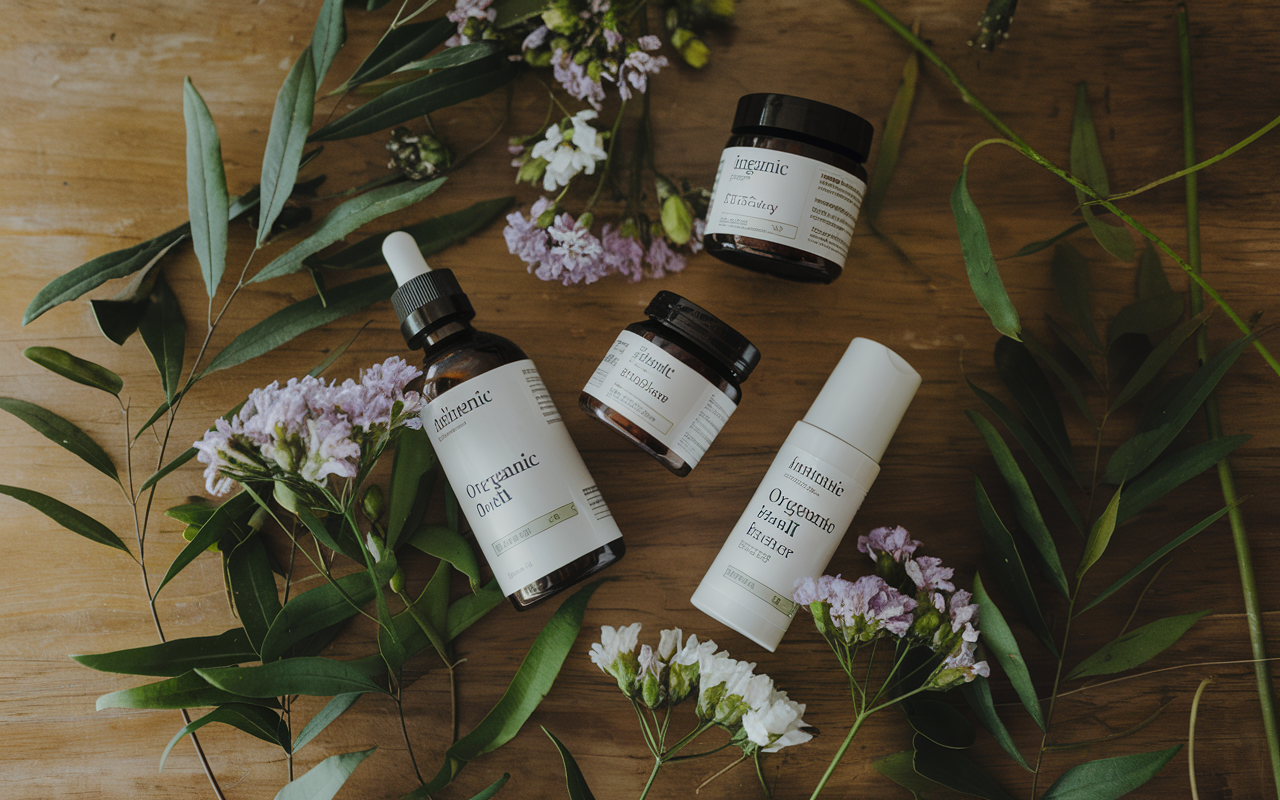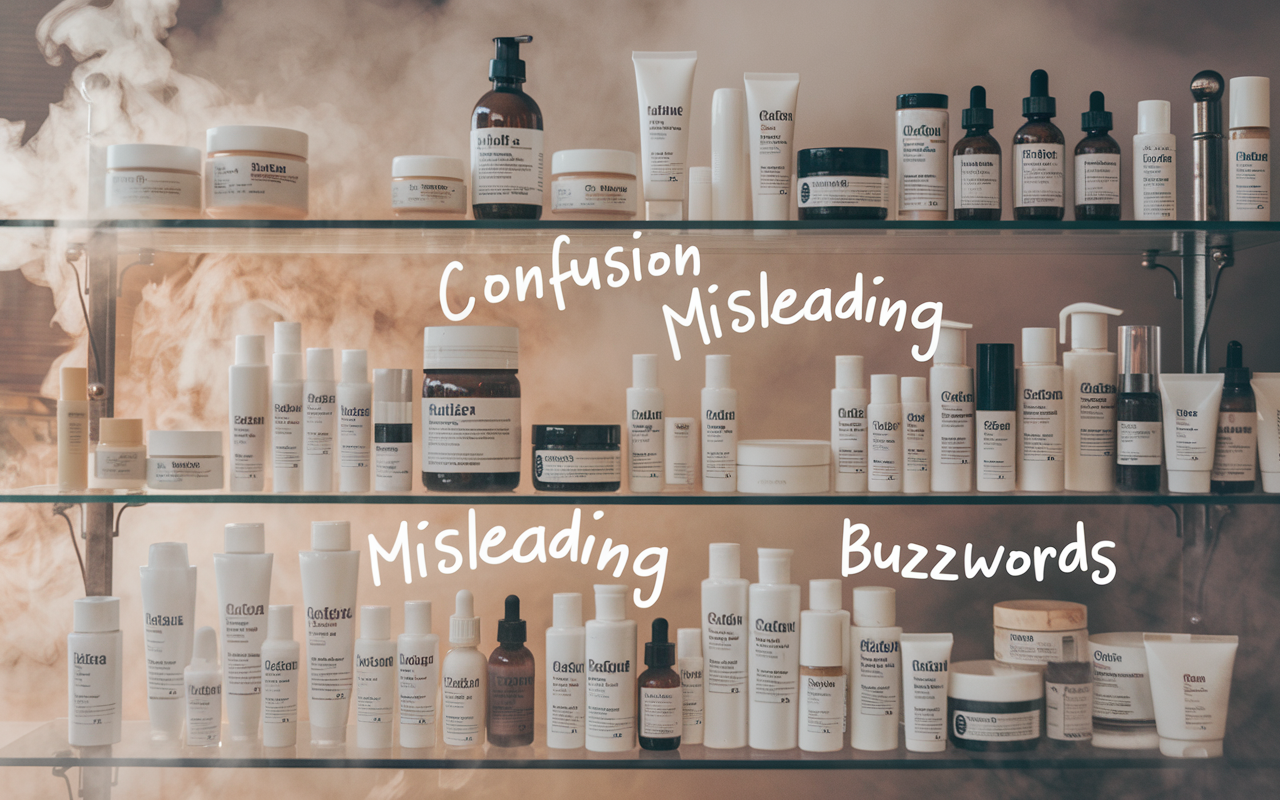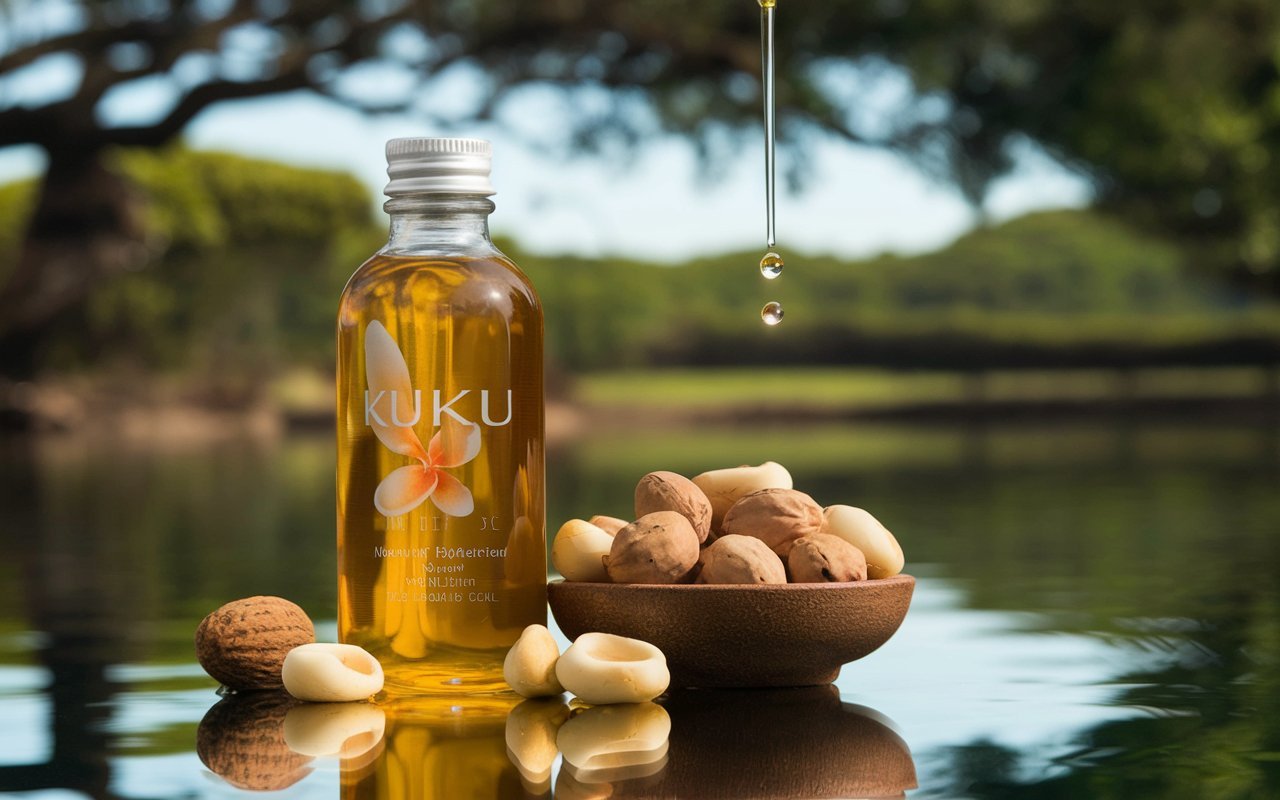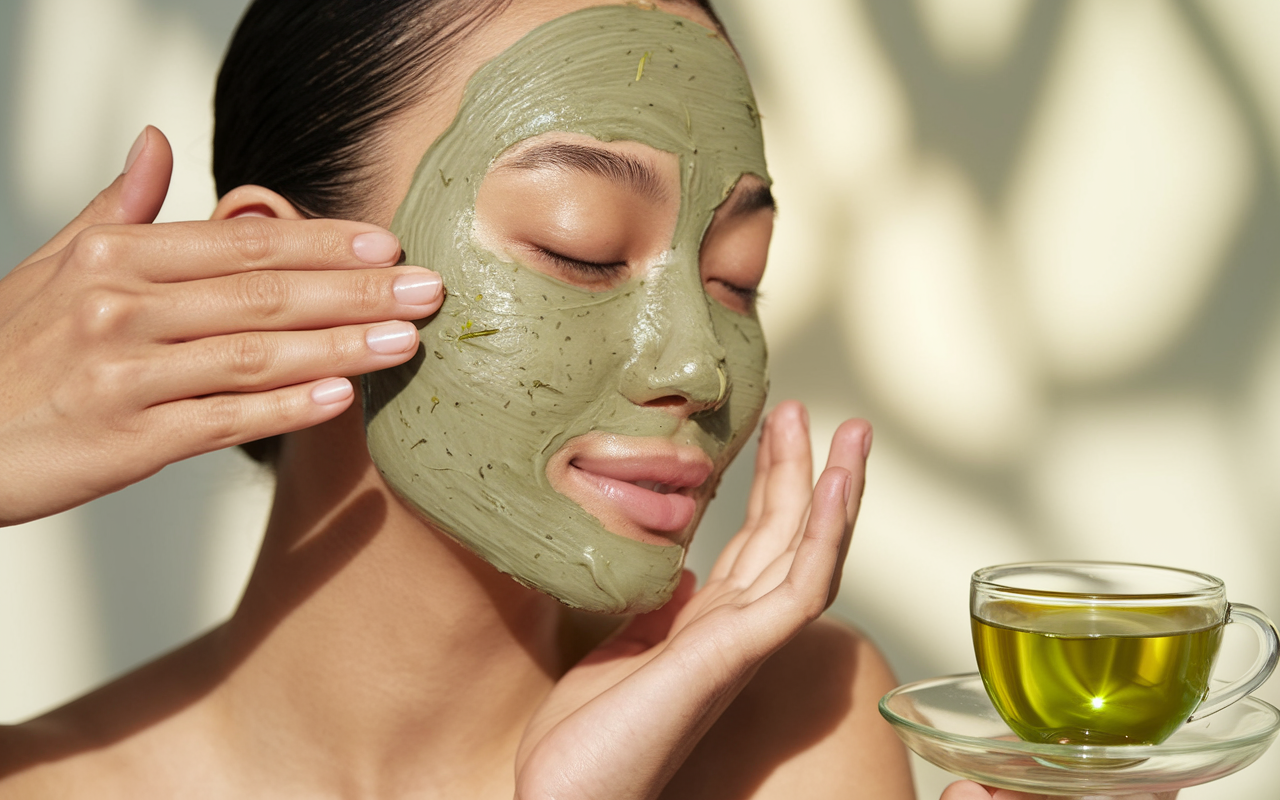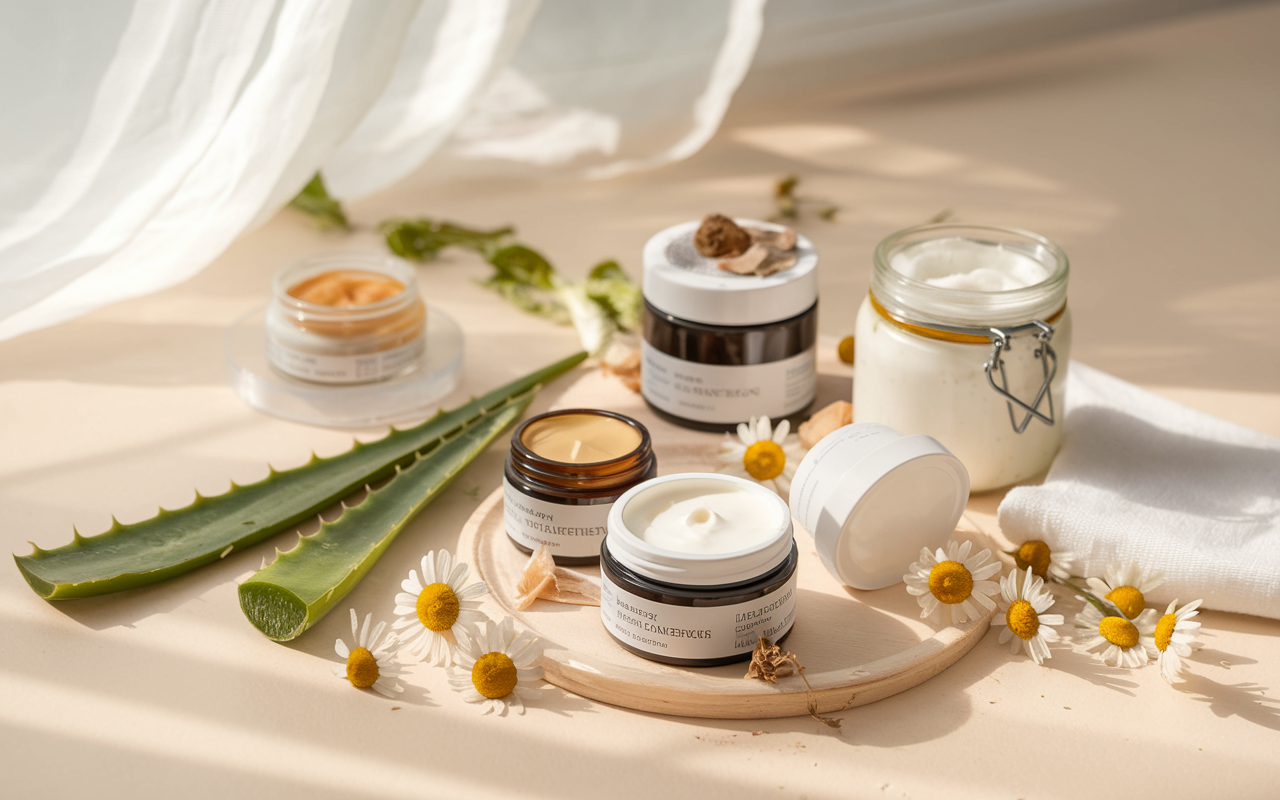
Introduction
There’s something incredibly captivating about the allure of organic skin care. The idea of pampering our skin with nature’s finest ingredients, free of synthetic chemicals, makes us feel like we’re doing something pure and wonderful for ourselves. However, even the most well-intentioned switch to organic skin care can be riddled with missteps. It’s not just about using products with a natural label; it’s about truly understanding what your skin needs and how to give it the best care. So, let’s dive deep into the world of organic skin care, highlighting the common mistakes people make and how to avoid them.
What Is Organic Skin Care?
Understanding the Basics
Organic skin care isn’t just a trend; it’s a holistic approach to nurturing your skin using ingredients derived from organic farming practices. These ingredients are cultivated without synthetic pesticides, fertilizers, or genetically modified organisms. The concept is simple yet profound: feed your skin with pure, chemical-free ingredients, and it will flourish.
The Difference Between Organic and Natural
It’s easy to lump organic and natural into the same category, but they’re not identical. Natural ingredients come from nature but might not be grown organically. Organic ingredients, however, are farmed without artificial chemicals. Knowing this distinction is vital to making informed decisions about your organic skin care routine.
Common Mistakes with Organic Skin Care
Misunderstanding Product Labels
Trusting Every “Natural” Claim
How often do we find ourselves wooed by the word “natural” on a label? Companies have a way of marketing their products to appear more organic than they truly are. Unfortunately, many products labeled as natural may contain hidden synthetic ingredients. The key? Always read the ingredients list. Look for certifications from reputable organizations, like USDA Organic, to ensure the authenticity of your organic skin care products.
Not Knowing How to Read Ingredients
The world of organic skin care can be a bit intimidating with its scientific-sounding ingredient names. But here’s the reality: if you’re serious about organic skin care, you need to educate yourself. Ingredients like “tocopherol” might sound artificial but are actually vitamin E, a potent antioxidant. Conversely, names that seem innocent could be hiding something less desirable. Taking a few minutes to research ingredients can protect your skin and make you a savvy consumer.
Using Too Many Products Too Soon
Overwhelming Your Skin
Imagine introducing a dozen new friends to your life all at once. Overwhelming, right? The same logic applies to your skin. Switching to organic skin care often comes with excitement, but layering too many new products can backfire. Your skin needs time to adjust to new ingredients, and overwhelming it can lead to breakouts, irritation, or even a weakened skin barrier.
The Consequence of Frequent Changes
Another mistake is not sticking with a product long enough to see results. Organic skin care products generally work gently and slowly, promoting healthier skin over time. Your skin never has the chance to adapt, If you’re constantly switching up your routine. Give each product at least four to six weeks before assessing its effectiveness.
Expecting Overnight Results
Organic skin care is a marathon, not a sprint. It’s easy to feel disheartened when you don’t see immediate transformations, but remember: patience is a virtue. Synthetic ingredients might provide instant gratification, but they often mask underlying skin issues rather than addressing them. Organic ingredients nourish and heal over time, so trust the process. Your skin is worth the wait.
Ignoring Patch Testing
Why Patch Testing Matters
We’ve all been there: a new, promising organic skin care product arrives, and we can’t wait to slather it on our face. But hold on! Skipping patch testing is one of the most common mistakes people make. Even the purest organic ingredients can trigger allergic reactions. Your skin is unique, and what works wonders for someone else may not work for you.
How to Do It Right
Patch testing is simple but effective. Apply a small amount of the product on your inner forearm or behind your ear and wait for 24 to 48 hours. If you notice redness, itching, or irritation, it’s best to skip that product. Taking this precaution can save your skin from major discomfort.
Not Considering Your Skin Type
Oily, Dry, or Sensitive – It Matters!
Organic doesn’t automatically mean suitable for everyone. Different skin types require different care, even within the realm of organic skin care. For instance, a rich, oil-based moisturizer might be perfect for dry skin but could exacerbate acne in oily skin. Understanding your skin type and choosing products accordingly is crucial.
Customizing Your Routine
Take the time to evaluate your skin’s needs. If you have dry skin, look for deeply hydrating ingredients like shea butter or hyaluronic acid. If your skin is oily, opt for lightweight, balancing ingredients like tea tree oil or aloe vera. Organic skin care is customizable, so tailor it to your unique needs.
Applying Products Incorrectly
Using the Wrong Order
In organic skin care, product application order matters. When products are applied incorrectly, their effectiveness may be reduced. The general rule? Move to the thickest consistency after starting with the thinnest. For example, serums go before oils, and oils go before creams.
The Art of Layering
Think of your skin as a sponge. First apply water-based products , then oil-based ones to optimize absorption. This layering technique ensures your skin gets the full benefits of each product. Mastering the art of layering can elevate your organic skin care routine to the next level.
DIY Gone Wrong: When Good Intentions Backfire
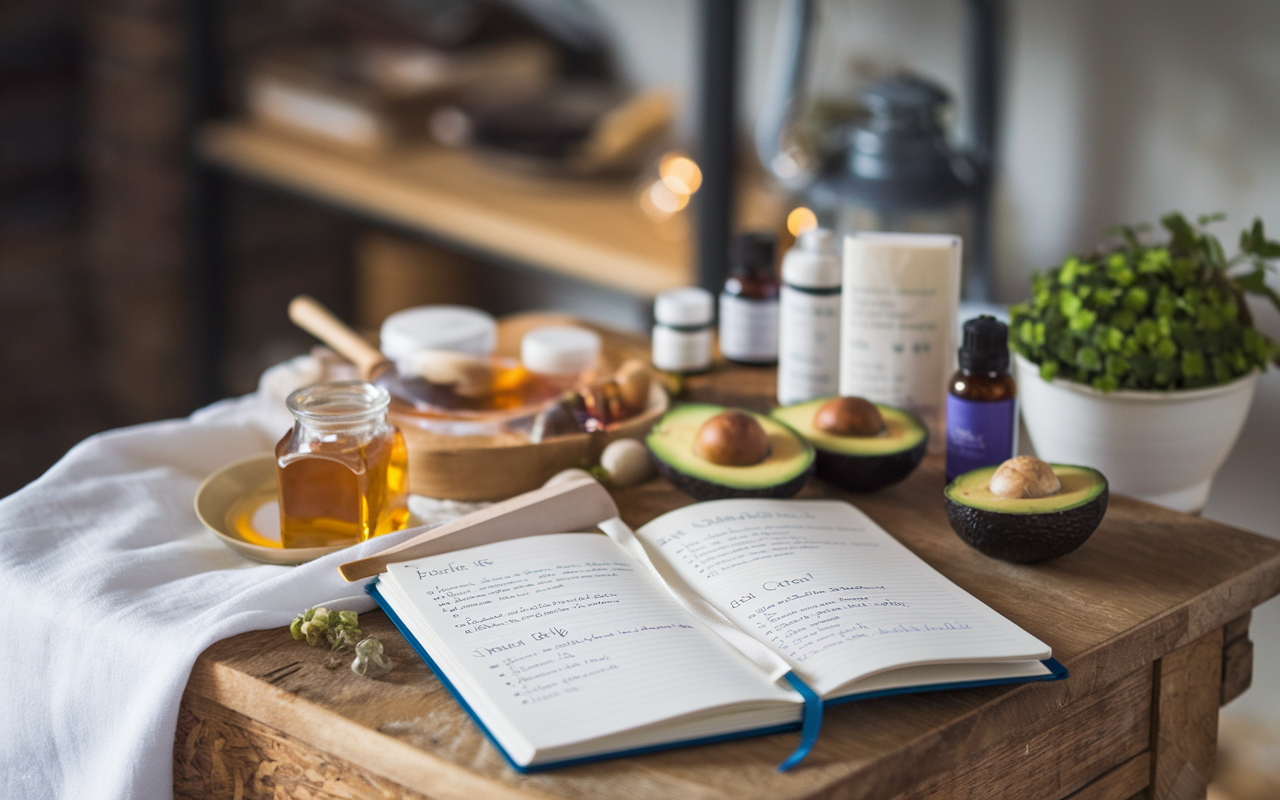
There’s something enchanting about crafting your own organic skin care concoctions. Mixing natural ingredients in your kitchen gives a sense of empowerment and self-sufficiency. However, just because an ingredient is natural doesn’t mean it’s always safe for your skin. It’s easy to get caught up in the charm of DIY, only to end up with unexpected skin damage.
Imagine waking up with red, irritated skin after a seemingly innocent lemon juice mask. It’s a harsh reality many have faced. Lemon juice is highly acidic and can disrupt your skin’s pH balance, leading to irritation and even increased sun sensitivity. Baking soda, another common DIY ingredient, may seem like a gentle exfoliator, but its high alkalinity can strip your skin of natural oils, leaving it raw and exposed.
Harmful Ingredients You Should Avoid
Let’s take a closer look at some DIY offenders.
- Lemon Juice: As tempting as it is to use, lemon juice is far too acidic for direct application on your face. It can lead to chemical burns, making your skin overly sensitive to sunlight.
- Baking Soda: While it’s a household staple for cleaning, baking soda is not skin-friendly. It disrupts your skin’s acid mantle, causing dryness and irritation.
- Undiluted Essential Oils: These potent plant extracts can cause severe reactions when applied directly to the skin. Essential oils like tea tree or peppermint need proper dilution to be safe for use.
- Raw Apple Cider Vinegar: It’s often hailed as a miracle remedy, but undiluted apple cider vinegar can damage your skin’s protective barrier and cause burns.
The rule of thumb? When in doubt, research. Your skin is not a test subject.
The Risks of Experimenting Without Research
When it comes to organic skin care, curiosity can sometimes get the best of us. We see glowing recommendations on social media or hear about the latest DIY trends and think, “Why not give it a try?” However, experimenting without having enough research may cause more harm than good.
Think of your skin as a loyal friend. Would you subject your friend to unknown substances without understanding the risks? No! The same amount of attention should be given to your skin. Before applying any new ingredient, delve into its properties. Is it suitable for your skin type? What are the potential side effects? A few minutes of research can save you weeks of regret.
Skipping Sunscreen: The Costly Mistake Many Make

Sunscreen is one of the most essential yet often overlooked aspects of any skin care routine. Even if you’re devoted to organic skin care, the sun’s damaging rays remain a formidable threat. UV exposure not only accelerates aging but can also cause irreversible damage, such as hyperpigmentation and, more seriously, skin cancer.
Yes, Even with Organic Products!
There’s a misconception that using organic skin care products makes you immune to the sun’s effects. Unfortunately, there is nothing more incorrect than this. The sun doesn’t care if your face is slathered in organic rosehip oil or synthetic creams—its rays will cause damage regardless. Make it a habit to apply an organic, broad-spectrum SPF daily, even on cloudy days.
How to Avoid These Mistakes and Thrive with Organic Skin Care
Educate Yourself on Ingredients
Knowledge is your greatest tool. Don’t just rely on labels that say “all-natural” or “organic.” Take the time to familiarize yourself with each ingredient and understand its benefits and potential drawbacks. When you see words like “jojoba oil” or “aloe vera,” know why they’re beneficial for your skin.
Organic skin care doesn’t mean you should be any less informed. Instead, it encourages you to be a more thoughtful and aware consumer. Your skin deserves your curiosity and care.
Keep Your Routine Simple
In the world of beauty, simplicity is often underrated. We’re bombarded with products promising miraculous results, leading us to believe that more is always better. But an effective organic skin care routine doesn’t need to be overwhelming.
Start with the basics:
- A gentle cleanser that respects your skin’s natural oils.
- A hydrating serum packed with antioxidants and nutrients.
- A moisturizer that locks in hydration and soothes your skin.
- Sunscreen, sunscreen, sunscreen.
Once you’ve established a solid foundation, you can gradually incorporate additional treatments. Remember, even the most luxurious routine won’t yield results if it’s too complicated to stick to.
- Be Patient and Consistent
Instant satisfaction is common in our society, but skin care doesn’t work that way. When using organic skin care, you’re investing in long-term health rather than immediate fixes. Think of your skin as a garden. Would you plant seeds today and expect flowers tomorrow? No, you’d water, nurture, and patiently wait for them to bloom.
Similarly, your skin needs time to adapt and regenerate. Allow your routine to do its magic for you. Consistency and patience will reward you with a radiant, healthy complexion.
Additional Tips for Organic Skin Care Success
Always Patch Test
No matter how natural or high-quality a product is, patch testing is crucial. Apply a small amount of the product on your wrist or behind your ear and wait 24-48 hours to check for any adverse reaction. This simple step can prevent discomfort and protect your skin from unwanted irritation.
Make Sunscreen a Priority
The best-kept secret to youthful, healthy skin is sunscreen. It should be the final step in your morning routine, organic or not. Even if your routine is packed with nourishing oils and antioxidant-rich serums, none of that matters if you skip sun protection. Think of sunscreen as your skin’s invisible shield, defending against premature aging, sunburn, and skin cancer.
Embrace the Power of Hydration
Hydration is at the core of any successful skin care regimen. Your skin craves moisture, whether it comes from drinking water or using hydrating products. Choose ingredients like hyaluronic acid, aloe vera, and glycerin to keep your skin plump and radiant. Dehydrated skin can appear dull and more susceptible to irritation, so make hydration a top priority.
Don’t Over-Exfoliate
Exfoliation can leave your skin feeling smooth and refreshed, but too much of a good thing can backfire. Over-exfoliating disrupts your skin’s barrier, leading to increased sensitivity and breakouts. Limit exfoliation to 1-2 times a week, and choose gentle, natural exfoliants like ground oatmeal or jojoba beads. Trust that your skin needs time to heal and renew.
Be Mindful of Expiration Dates
Organic skin care products often have shorter shelf lives due to the absence of synthetic preservatives. Check expiration dates regularly, and if a product smells off or changes in texture, it’s time to toss it. Using expired products can lead to irritation or breakouts, negating all the good intentions behind your organic routine.
The Emotional Journey to Healthier Skin

Using organic skin care is more than a commitment to your skin; it’s a pledge to yourself. You’re investing in self-love, choosing products that align with your values, and treating your skin with the utmost respect. It’s a journey that requires patience, education, and a willingness to learn from your mistakes.
Every decision you make, from selecting a calming chamomile moisturizer to researching the best organic SPF, reflects your dedication to holistic well-being. Your skin is a canvas of your experiences, and caring for it with organic products is like nurturing a delicate, precious piece of art.
Conclusion
Embracing organic skin care is more than just a beauty choice; it’s a profound act of self-love, a promise to nurture yourself in the purest way possible. It’s a celebration of nature’s wonders, a heartfelt commitment to honoring your body, and an expression of your respect for the earth. Choosing organic products is about surrounding yourself with ingredients that work harmoniously with your skin, allowing you to feel more connected to the world around you.
But just like any meaningful relationship, organic skin care demands understanding, patience, and unwavering commitment. It’s about giving your skin the space to heal and flourish, trusting that real beauty takes time to emerge. There will be moments of doubt, when your skin feels less than perfect, and the temptation to reach for quick fixes will be strong. Yet, it is in those moments that your commitment to organic skin care will truly shine.
By learning from and avoiding common mistakes, you’re setting yourself up for a journey that prioritizes long-term health over temporary satisfaction. Think of organic skin care as a dance with nature—delicate and graceful, requiring trust in every step. When you take the time to educate yourself on ingredients, simplify your routine, and practice consistency, you give your skin the best chance to glow in its natural beauty.
Organic skin care is about more than what you put on your face; it’s a holistic approach to wellness. It’s about nourishing your body from the inside out, drinking enough water, eating wholesome foods, and getting that extra bit of sleep your skin craves. It’s a reminder to be kind to yourself, to cherish the skin you’re in, and to approach self-care with the gentleness you deserve.
Take a deep breath, accept the beauty of simplicity, and let go of the desire for rapid happiness. Give your skin the love and care it craves, and watch as it transforms over time. Celebrate the small victories: the way your skin feels more hydrated, the newfound softness of your cheeks, or the healthy glow that catches the light. Organic skin care is a journey, and like all journeys worth taking, it requires faith in the process.
Trust that nature knows best. Trust that your skin is capable of incredible things when treated with respect and care. As you continue to invest in your organic skin care routine, you’ll not only see physical changes but also experience a deeper emotional connection to the choices you make. You’ll feel empowered, knowing you’re nurturing yourself in the most authentic way possible.
In the end, organic skin care isn’t just about achieving radiant skin—it’s about cultivating a lifestyle that honors your well-being and cherishes the environment. It’s a love story between you and your skin, where every product, every drop of oil, and every moment spent in self-care becomes an expression of the care you’re willing to give to yourself. So, embark on this beautiful journey with an open heart, and know that with time, your skin will thank you in ways you never imagined.
FAQs
Q: Can organic skin care cause breakouts?
A: Yes, it’s possible. Your skin may go through a purging phase as it adjusts to new, natural ingredients. However, if breakouts persist, you might be using a product unsuitable for your skin type.
Q: How long does it take to see results from organic products?
A: The product and the individual both affect the results. Generally, it takes about 4 to 12 weeks for noticeable improvements. Be patient and trust the process. Organic skin care focuses on long-term benefits rather than quick fixes, so consistency is key. Your skin will thank you for your patience.
Q: Can I use organic skin care products if I have sensitive skin?
A: Absolutely! Many organic products are formulated specifically for sensitive skin, using gentle, calming ingredients like aloe vera, chamomile, or oat extract. However, always perform a patch test first to ensure your skin doesn’t react negatively. Everyone’s skin is unique, and what soothes one person’s skin may irritate another’s.
Q: Are DIY organic skin care remedies better than store-bought products?
A: It depends. DIY remedies can be beneficial if done correctly, using safe and appropriate ingredients. However, many DIY treatments lack the scientific formulation needed to maintain the correct pH balance and effectiveness. Store-bought organic skin care products are often carefully developed and tested to be safe and effective. Proceed with caution and research thoroughly if you prefer making your own skin care treatments.
Q: How can I determine whether a product is actually organic?
A: Look for certifications like USDA Organic, COSMOS, or ECOCERT on the packaging. These seals indicate that the product meets strict organic standards. Additionally, check the ingredient list for synthetic chemicals or preservatives. Remember, brands may use misleading marketing, so being an informed consumer is crucial.
Also Visit:
How to Switch to Organic Skin Care without Breaking the Bank 2024
Inspiring DIY Organic Skin Care Recipes You Can Make at Home 2024
